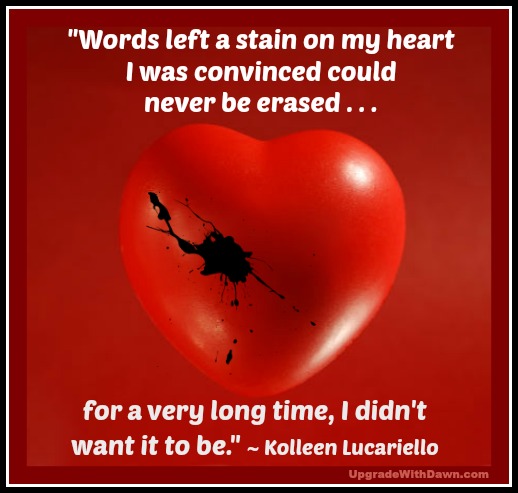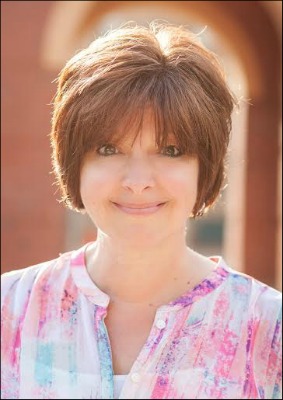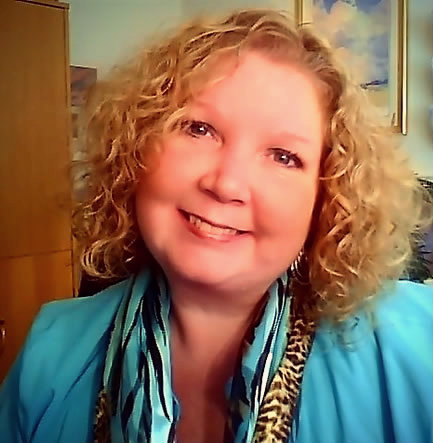Remove the Ink Stain
Kolleen Lucariello reminds us words wound us, but God doesn't want us to stay hurt. In this Spiritual Life UPGRADE she shares a personal story about how the Lord helped her deal with her anger and pain.
her anger and pain.
“Sometimes,” Kolleen says, “words can leave a stain on a heart—like ink on paper.”
Oh yes. I (Dawn) dealt with horrible, painful words some 30 years ago. I cried for weeks! But I'm glad the Lord taught me the lessons Kolleen shares here.
Kolleen continues…
Within a few months of my wedding day, a letter arrived in our mailbox from a family member who decided my husband Pat needed help with a decision he and I were in the process of making. Of course, even though the letter was addressed to him, I read it.
That was when the words—which had been written in ink on notepaper—left a stain on my heart I was convinced could never be erased away.
Truthfully, for a very long time, I didn’t want it to be.
The letter held words of criticism and words that hurt, and it also held my heart and mind for many months following its arrival.
I tucked it away in the drawer of our nightstand where it was within easy reach when I needed a reminder of why I was mad. Rereading it helped me remain steadfast in my anger, so I would read it almost every day—sometimes more than once.
Any moment I felt the grip on my anger begin to loosen, I would retreat to the bedroom nightstand, remove the letter, and read it over one more time.
Oh, what fire that little spark could ignite.
Until one day when I was advised to throw the letter away and I didn't want to throw it away. It felt good holding onto it. Or so I thought.
Until I finally threw it away.
I was surprised how much better I felt when it was no longer in my possession. Throwing it away, so it was no longer something I could hold physically and look at, released me from the stabbing pain I felt when I read that letter over and over again.
Why do we inflict pain like this upon ourselves?
Next, I needed to stop rehearsing it over and over in my mind.
I had read that letter so many times it was memorized.
It was easy to access because it was stored like a file, and at any given moment I could search my memories filing system and retrieve it. I just needed the name of the offender to flow through my mind and boom—just like that—the file was pulled, revealing all misdeeds against the offender.
Then I began to sense it was time to delete the file. I knew this meant I needed to change the direction of my thoughts every time the words of that letter began to enter them.
That was a hard choice.
It was also a constant battle. But, I knew it was one that needed to be done if I were ever to be free from the pain of that letter.
It wasn’t enough to just delete the file and let it go.
I thought it was. I wanted it to be! However, the Lord revealed I would never truly be free until I was able to forgive. Ouch.
Extending forgiveness takes courage when you’ve been wounded.
God would never ask us to offer grace to others if He didn’t know we would benefit from it.
You upgrade your life when you . . .
1. Remove anything you are holding that keeps you tied to anger.
Holding on gives it power over you and the ability to become an idol in your life.
Remember, Jesus said to remove anything causing us to stumble (Matthew 5:29). And God has strong feelings towards idols.
2. Stop rehearsing the conversation or situation over in your mind.
"Set your mind and keep focused habitually on the things above [the heavenly things], not on things that are on the earth [which have only temporal value]. For you died [to this world], and your [new, real] life is hidden with Christ in God" (Colossians 3:2-3 AMP).
3. Forgive.
The Word is clear that we are called to forgive. When we nurture hurt and anger with the result that it interferes with our relationship with God, well, then our Father will not forgive us (Matthew 6:15, AMP).
Where we set our mind matters.
Has your heart been stained by ugly words, accusations and insults that continually fill up your thoughts? Make today the day you find the courage to remove the ink stain.
 Kolleen Lucariello, #TheABCGirl, is the author of the devotional book The
Kolleen Lucariello, #TheABCGirl, is the author of the devotional book The  ABC’s of Who God Says I Am. Kolleen and her high school sweetheart, Pat, reside in Central New York. She’s a mother of three married children and Mimi to four incredible grandkids. She desires to help others find their identity in Christ, one letter at a time. Find out more about Kollen on her website.
ABC’s of Who God Says I Am. Kolleen and her high school sweetheart, Pat, reside in Central New York. She’s a mother of three married children and Mimi to four incredible grandkids. She desires to help others find their identity in Christ, one letter at a time. Find out more about Kollen on her website.
Graphic adapted, courtesy of imelenchon at Morguefile.
 Post a Comment → Posted on
Post a Comment → Posted on  Tuesday, February 20, 2018 at 7:20AM
Tuesday, February 20, 2018 at 7:20AM  Bitterness,
Bitterness,  Criticism,
Criticism,  Forgive,
Forgive,  Forgiveness,
Forgiveness,  Hurtful Words,
Hurtful Words,  Hurts,
Hurts,  Kolleen Lucariello,
Kolleen Lucariello,  Upgrade Your Life,
Upgrade Your Life,  Upgrade with Dawn,
Upgrade with Dawn,  Wounds Upgrade Your Life
Wounds Upgrade Your Life  Attitudes,
Attitudes,  Relationships
Relationships 









